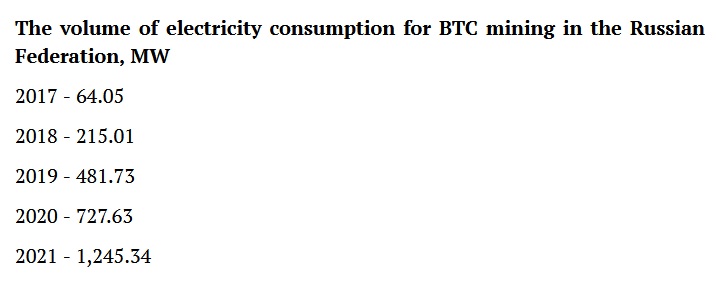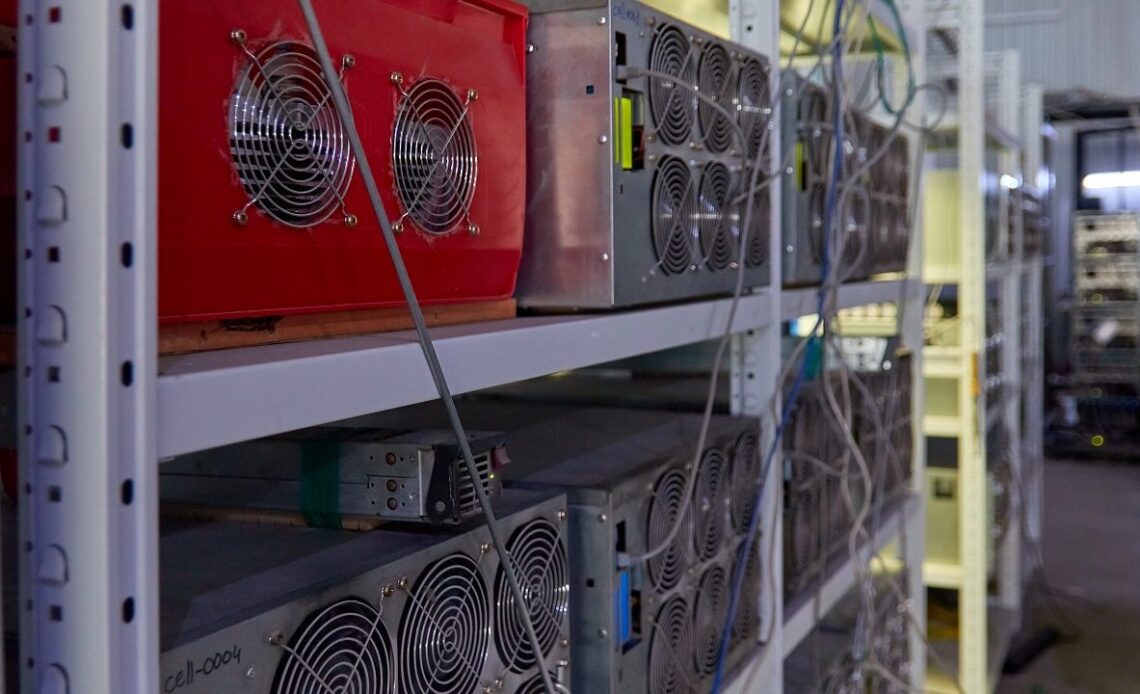Power needs of cryptocurrency miners in Russia have grown significantly since 2017, with consumption of electrical energy seeing a 20-fold increase over the five-year period. In 2021, the minting of the coin with the largest market cap, bitcoin, required 1.25 gigawatts in the country. Experts say, however, that Russia has the spare capacities to satisfy much larger demand.
Crypto Miners Spend as Much Power as Russian Farmers
Electricity consumption in Russia’s crypto mining industry has been constantly rising since 2017, a new study has established. The positive trend led to an annual increase of at least 150%, according to specialists working for mining hardware importer Intelion Data Systems.
The extraction of bitcoin (BTC) alone needed 1.25 gigawatts of energy in 2021, their calculations show. The volume of electricity used for the production of other major cryptocurrencies, such as ether (ETH) and litecoin (LTC), can be an additional 40-50% of BTC’s consumption, the researchers say.

Various government institutions estimate that cryptocurrency mining accounts for between 0.64% and 2% of the total electricity consumption in the Russian Federation, the business news portal RBC and other Russian media revealed, quoting Intelion’s report. That’s about as much as agriculture’s share of the total consumption.
The prospects for the development of the crypto market in the Russian Federation look quite serious and require the legalization of activities like mining, Novie Izvestia noted in an article. With almost all types of electricity generation at its disposal — nuclear power plants, hydropower facilities, and a surplus of other capacities — Russia is in a position to achieve highly efficient cryptocurrency mining.
Share of Industrial Crypto Mining Continues to Grow
Russia’s largest industrial-scale mining operators consume 40-45% of the electricity used for mining in the country. The share of these miners in the total volume of consumption has been growing by an average of 5% to 7% each year, the study has found.
Such a significant increase, once the sector is legalized and organized through transparent regulation, will entail significant positive shifts at the macro level, like growth in employment of highly skilled workers, development of related industries and further digitalization of the economy, the authors believe.
“Growing interest in energy-intensive blockchain computing in the context of…
Click Here to Read the Full Original Article at Bitcoin News…
























